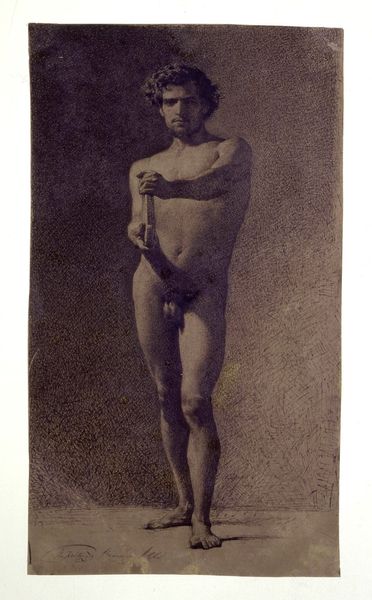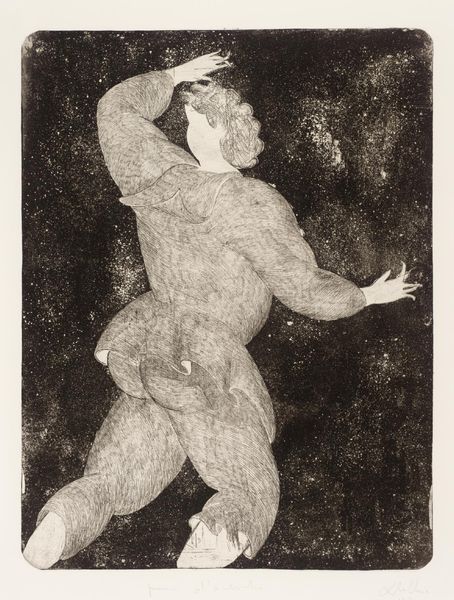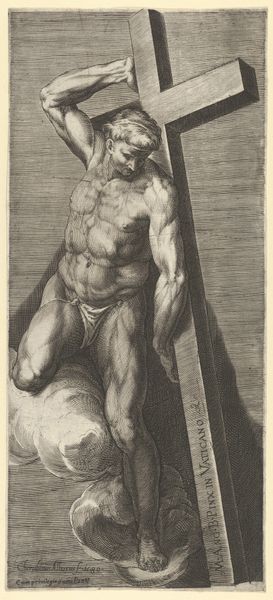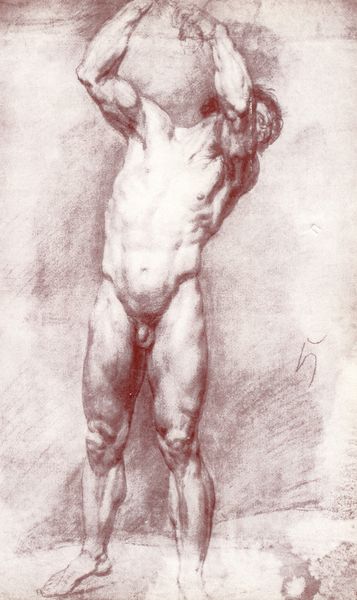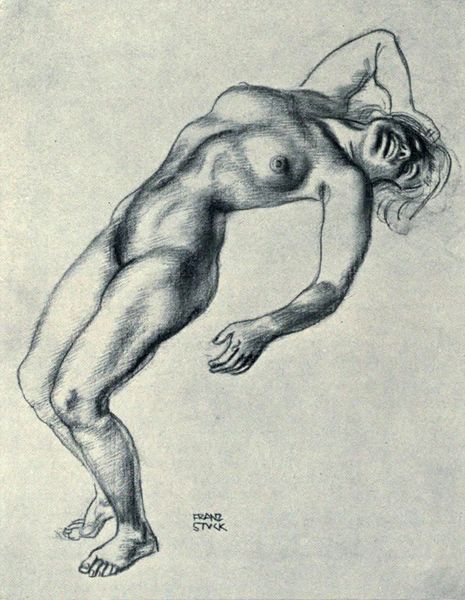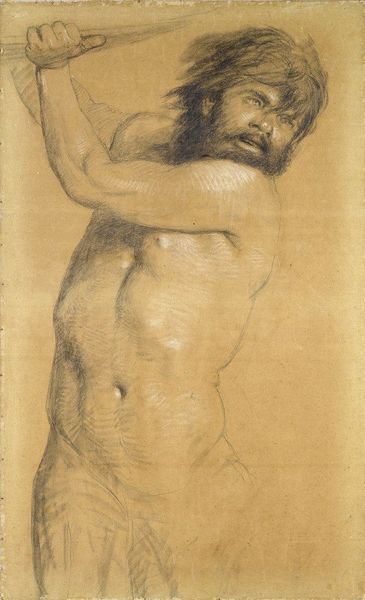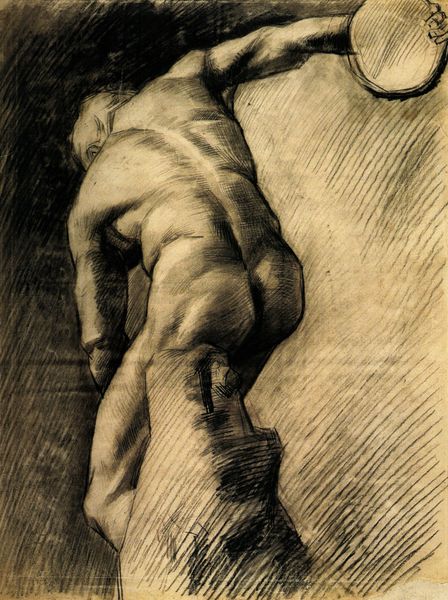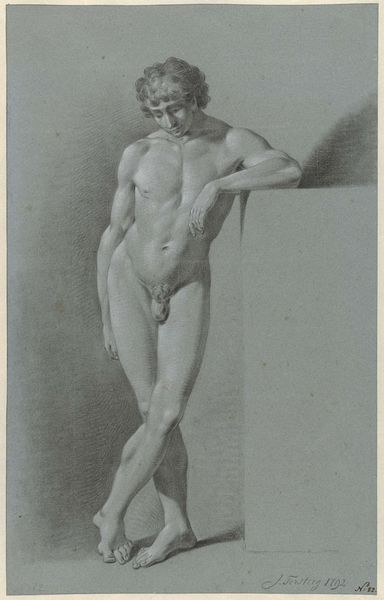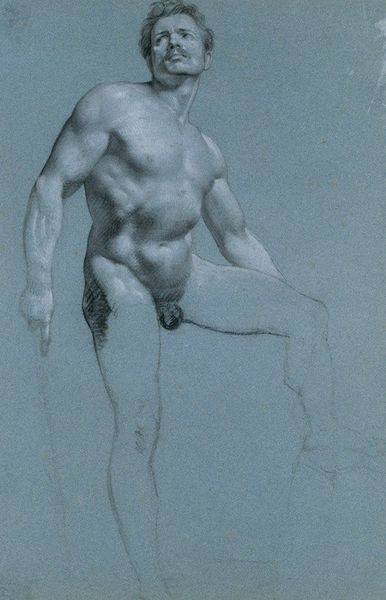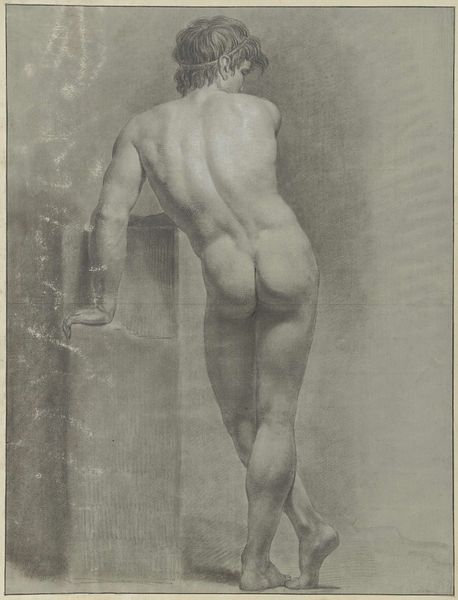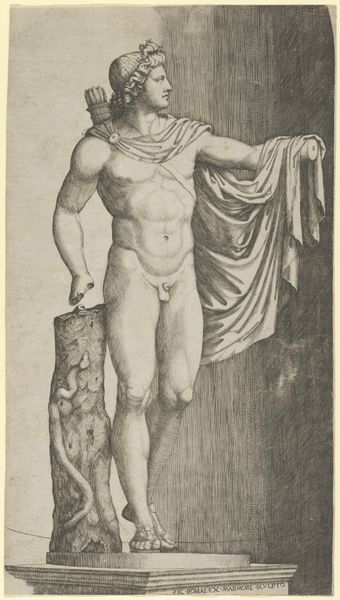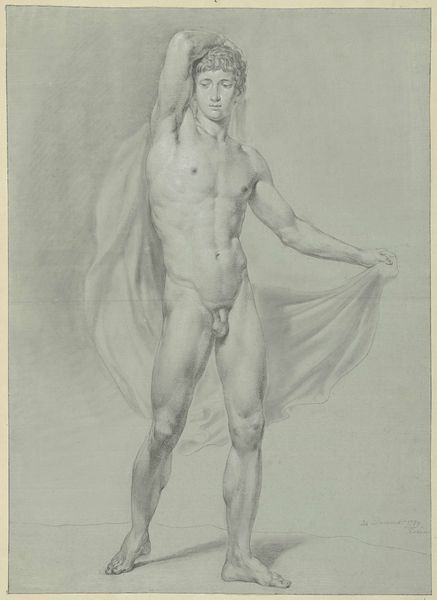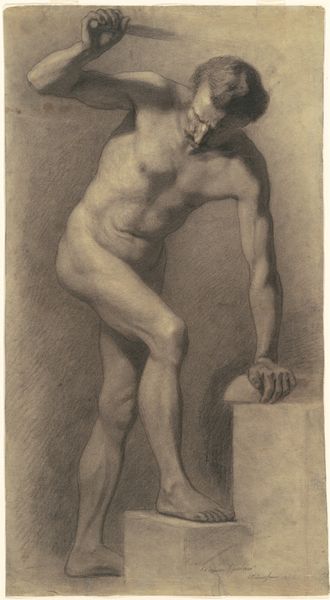
drawing, pencil
#
portrait
#
drawing
#
self-portrait
#
charcoal drawing
#
figuration
#
11_renaissance
#
charcoal art
#
pencil
#
portrait drawing
#
northern-renaissance
#
charcoal
#
nude
#
male-nude
#
arm
Copyright: Public domain
Curator: This is Albrecht Durer’s “Nude Self-Portrait,” created around 1505. The drawing is rendered in charcoal and pencil. Editor: Wow, Durer, huh? Stark, like a confession. All that intense hatching… the guy's got something to say, doesn't he? I'm feeling exposed just looking at it. Curator: Indeed. It’s a raw and somewhat confrontational image, unusual for the time. The male nude was a celebrated subject, certainly, but usually presented in idealized forms. This… this is different. Editor: Exactly! This isn’t some marble god. This is flesh, blood, maybe a few too many late nights. Look at the tension around his eyes, that weary set to his mouth… It's like he’s grappling with something heavy, even if we don't know exactly what. I'm catching notes of existential dread in the northern light. Curator: You've picked up on something vital there, I believe. While the Italian Renaissance was idealizing man, Durer, rooted in the North, brings a uniquely introspective quality. Consider the placement of his hands – mostly hidden. The shadows cloak parts of his body, creating ambiguity. This departs from the conventional heroic male nude; there’s vulnerability and introspection at play here. The absence of direct engagement complicates what would otherwise be considered academic tradition. Editor: Okay, so it's like Durer is quietly questioning the 'perfect man' idea right when everyone else is obsessed with it? Talk about awkward timing. It's as though he says, ‘Here I am. Take it or leave it.’ I mean he's staring directly at us with total honest assessment in those deep pools of eye, no romantic fluff! Love it. Curator: Precisely! It’s Durer stripping himself bare, in every sense. By depicting his own, unflattering image with the classical medium typically reserved for mythological figures and Biblical scenes, he’s not just breaking from artistic norms—he is imbuing his own image with a kind of significance only available at turning points of awareness, revealing something quite human that transcends simple idealization. Editor: Well, I walked into that one. Talk about icons messing with image. Seeing his vulnerabilities like that...makes the portrait feel strangely intimate, as though I understand myself just a little bit better, too. Curator: It's a truly exceptional work for provoking exactly those kinds of feelings.
Comments
No comments
Be the first to comment and join the conversation on the ultimate creative platform.
